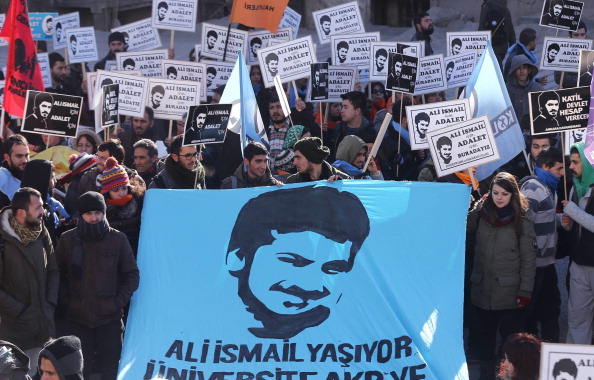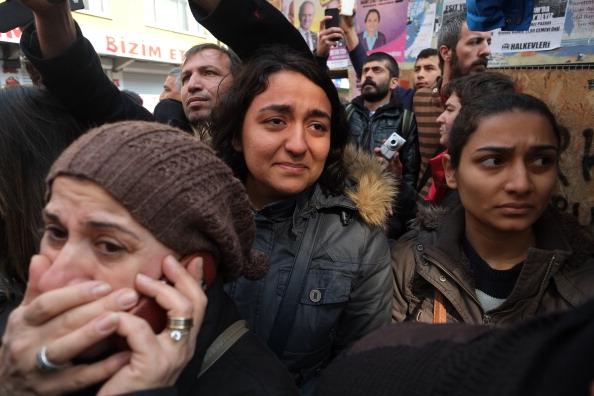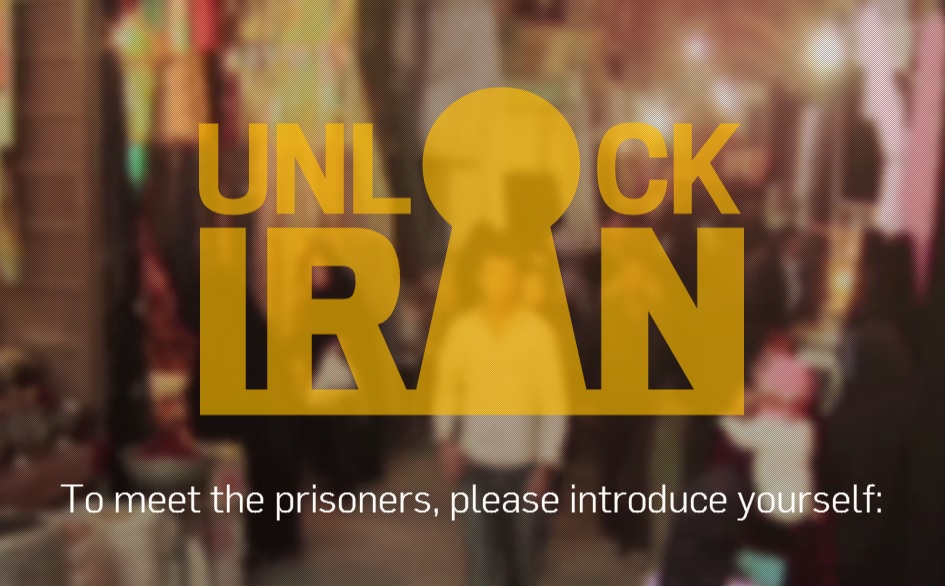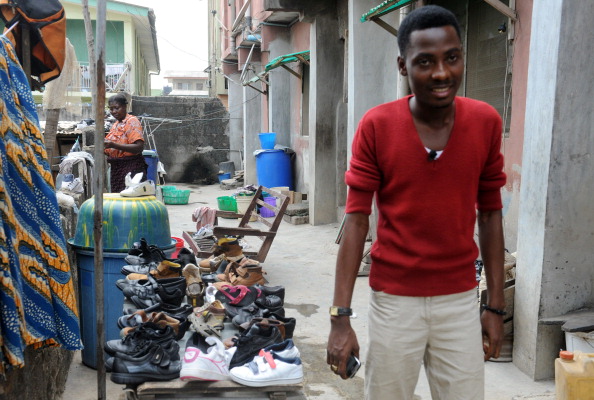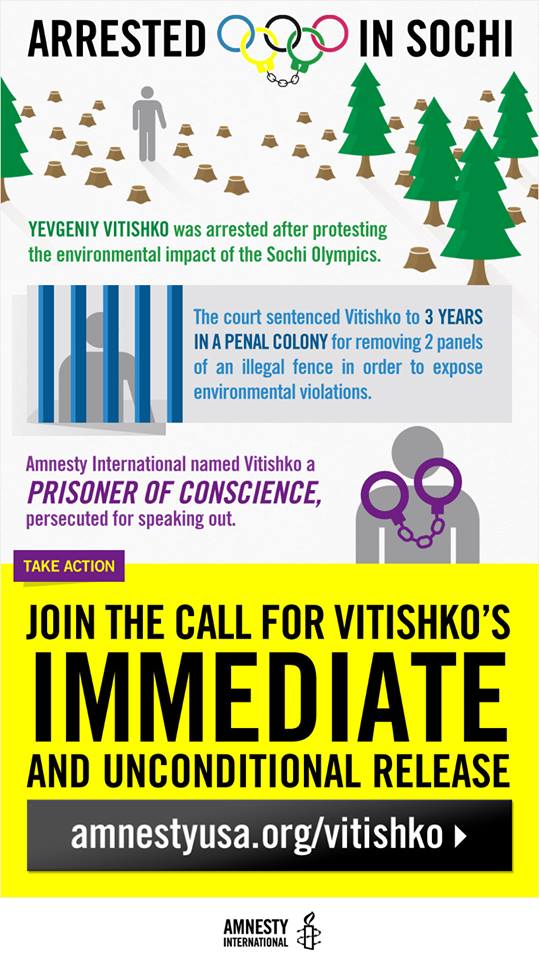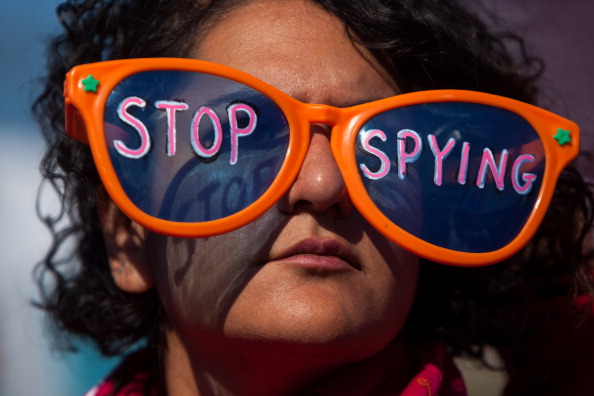
A woman listens to speakers during the Stop Watching Us Rally protesting surveillance by the U.S. National Security Agency (Photo Credit: Allison Shelley/Getty Images).
This post is part of a series produced by The Huffington Post and Amnesty International USA in the theme of “Bringing Human Rights Home.” Read all posts in the series here.
By Ann Burroughs, Amnesty International USA Chair of the Board of Directors
As Americans and people around the world grow increasingly wary of the U.S. government’s mass surveillance program, it is our obligation to speak up.
As a former prisoner of conscience in South Africa during the apartheid era, I know from personal experience just how important it is to protect our fundamental freedoms. And make no mistake: the right to privacy is absolutely fundamental to a free society. True, many of us broadcast selfies and personal details of our lives on social media every day. But that is our right and our choice. It does not give the government the right to collect and store every piece of data about us, without our consent.
The cost of widespread government surveillance is steep. The knowledge that everything we do can be monitored will change the way we act and what we say. This is how governments create a climate in which people fear the consequences of expressing themselves openly and worry their beliefs and activities can be used against them.
